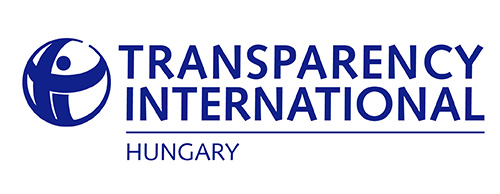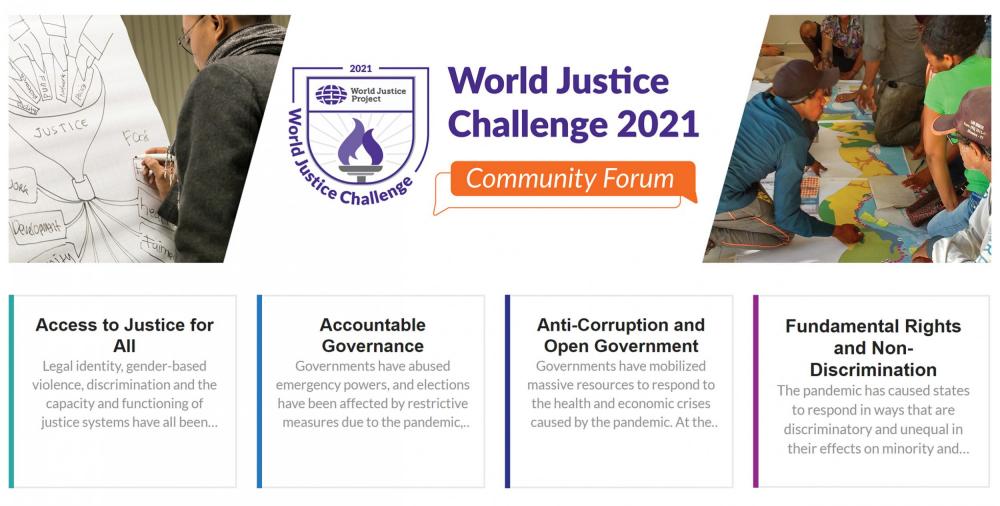Project Pitch and Q&A
Watch Transparency International Hungary Foundation's World Justice Challenge project pitch and join WJP's World Justice Challenge 2021 Community Forum to ask questions to project representatives, explore additional resources, meet new colleagues, and more. Join the discussion and help us build stronger rule of law values, institutions, and communities around the world.
Ask your question at the Community Forum
Project Summary
Transparency International Hungary is determined to challenge the abuse of special powers afforded to the government with the excuse of containing the COVID-19 pandemic. Instead of saving lives and mitigating the economic impacts of the pandemic, the government further tightens its power grab and channels public money to oligarchs and cronies. This goes hand in hand with the restriction of fundamental rights, such as the freedom of information. TI-Hungary has successfully advocated for the revocation of such restrictions during the pandemic's first wave. Now we are here to repeat our efforts to prevent further disruption of the rule of law and democratic backsliding.
Problem Statement
Hungary, once leading the democratic transformation in East-Central Europe's post-Soviet epoch, made a U-turn on democracy in the post-2010 period, resulting in a decline of the rule of law fueled by the tightening of Prime Minister Viktor Orbán's grip on the country's state institutions and a clamp down on civil society and free media. The disruption of the checks and balances system enabled systemic corruption, which explains why Hungary failed to embark on a trajectory of inclusive and sustainable economic growth, which would benefit large groups of society.
The coronavirus pandemic and the government's response to the challenges accelerated the deconstruction of the country's democratic edifice, exemplified by the introduction of a rule by decree regime, which substantially broadened the government's room for maneuver. The government used the need to combat the pandemic as a pretext to further curtail the accessibility of public interest information. In a decree dated May 4, 2020, the government tripled the maximum 30-day deadline set out in the law for servicing freedom of information requests, citing the very high number of information requests received by hospitals to explain this restriction. Besides, the government also amended the Fundamental Law, for the ninth time since its entry into force in 2012. The Ninth Amendment rewrites the constitutional definition of public funds, thus enabling the easier transformation of public assets into private wealth.
This tops the Hungarian government's disappointing freedom of information track record that entails the shrinking of publicity and the expansion of secrecy over different domains of government and public spending. Transparency International Hungary (TI-Hungary) believes that the possibility to use freedom of information tools to practically exercise the inherent right to be informed about government actions and public expenditure is essential in regimes obsessed with secrecy and prone to authoritarianism. We, therefore, intend to work toward the strengthening of the freedom of information framework to empower citizens and CSOs to keep the government's executive power under control.
Project Description
TI-Hungary has been extensively using freedom of information tools to unmask the corrupt and to unveil government wrongdoing. We won numerous high-profile freedom of information disputes before law courts during the past decade. In 2020, we started thirteen freedom of information cases, out of which we took seven cases before court and won three cases in the first instance, with the remaining cases still pending. We also won four cases, commenced in previous years, in the final instance, and five more FOI litigations of the year 2019 are still waiting for final adjudication. With a dozen and a half court cases annually, TI-Hungary contributes to the clarification of shady public tenders and the use of EU funds as well as incidents of cronyism and nepotism. In this specific case, our idea was to use FOI tools to compel the government to 1) admit that the restriction of the accessibility of public interest information had nothing to do with managing the challenges following from the coronavirus pandemic, and 2) revoke this restriction.
We were successful, as the government, in response to our questions, acknowledged that it did not know the number of information requests received by hospitals, although this argument was intended to substantiate the prolongation of the mandatory response deadline. Basically, the government confessed that this restrictive regulation was arbitrary, and it stood on shaky legal grounds.
Our activities and the advocacy campaign we built on the successes generated a great deal of public attention and significant repercussions in the media, therefore we dare to conclude that TI-Hungary's efforts had a fair share in incentivizing the government to revoke this regulation. In the end, the revocation took place on June 18, 2020.
This action had takeaways even beyond the fact that the government withdrew an obstacle thrown in the way of access to public data. We have learned that with the targeted use of freedom of information tools, civil society can make a change even in an incrementally intolerant environment where the government is reluctant to listen to criticism and civilian voices.
Project Impact and Potential for Scaling, Replication, and Sustainability
The experience that civil society does have tools to upkeep rule of law standards is particularly important, as the Hungarian government, during the coronavirus pandemic's second wave, reintroduced the prolongation of the response deadline, and topped it with constitutional amendments, all aiming to make the transformation of public assets into private wealth, something that occurs at breakneck speed, easier. The government's endeavor anticipates that the targeted use of freedom of information tools will remain an important component of civil society actors' anti-corruption repertoire.
Hungary is a captured state, marked with the worrisome emergence of cronyism and clientelism, where institutions do not represent public good, but instead tend to promote the interests of a selected few. Regarding this, human rights defenders, and watchdogs, such as TI-Hungary are faced with growing expectations and with growing responsibility to 'name and shame' wrongdoers, and to make it more difficult for the government to get away with granting impunity to the beneficiaries of corrupt practices. All this coupled with the government's determination to restrict outside critics' ability to do their job will increase the importance of the fight for accessibility of public information and will make our efforts once again very topical.
That said, there will be ample opportunities for TI-Hungary to showcase government malpractice and the lack of willingness to step up against corruption. These activities, and prominently the targeted use of freedom of information tools will serve to compel the government to admit to intentional wrongdoing or to prodigal or questionable public spending.
The government undeniably uses the needs generated by the current coronavirus pandemic as a pretext to further enrich members of the ruling elite at the expense of public resources, often even without trying to disguise that what happens is basically a diversion of state revenues. The most prominent examples include the conveyance of almost HUF 500 billion worth of state-owned bond packages and direct grants to a private postgraduate institution and the provision of non-refundable subsidies to the largest hotel chain owned by the wealthiest individual in Hungary. Another illustrative case is the spending of some HUF 300 billion to procure almost 17 thousand respiratory machines in an overpriced deal and without open tendering. Even though the government condoned this business by promising to resell the unnecessary items, these do not at all sell on the market, as evidenced by the Ministry of Foreign Affairs and Trade's response to TI-Hungary's FOI request. All in all, it is safe to predict that TI-Hungary will be busy in the near future, as there will be room for freedom of information actions, even beyond the regulatory restrictions described above.
Featured Resources
- TI Hungary's Press Release on the Latest Corruption Perceptions Index
- TI Hungary's Executive Summary on the Latest Corruption Perceptions Index (PDF)
- Our Project Manager’s Latest Op-ed on Hungary's Anti-corruption Performance
- TI Hungarys Opinion on the State of Emergency in Hungary
- Our Executive Director's Recent Op-ed on how Viktor Orban is Using COVID to Enrich his Cronies and Clientele
Key Project Links
Social Media: Facebook, Twitter, YouTube, Instagram
Website: transparency.hu
Submit Your Questions and Get Ready to Pick a Winner!
Representatives of World Justice Challenge 2021 finalist projects are on hand to answer your questions. Join our online Community Forum to engage with finalists, share resources, and network with other members of the rule of law community. Submit your questions now and get ready to vote for your favorite project—voting opens in mid-April!
Join the Conversation

